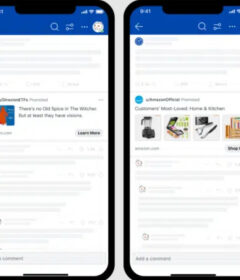The Most Critical Google Ads (AdWords) Trends of 2019

Search engine marketing (SEM) has been a game-changing marketing tool for companies for the last ten years. But today, creating a simple ad is not enough to keep driving traffic to websites. Search has become so complex that it is prohibitively difficult for the average individual to create a successful search ad.
AdPoint Agency, a premier Google Partner, asked its resident expert and Managing Director, Felix Wenzel, how to build profitable SEM campaigns in 2019. A frequent coach to standing-room-only sessions at the Google Digital Garages in Hamburg, Germany during 2018, Felix outlines some key opportunities and challenges that he expects to see from Google Ads in 2019.
Smart Features – bring complications, but offer advantages
The update from Google AdWords to Google Ads brings many new features, including more automated and smart options, like Smart Campaigns, with new and updated tools integrated directly into the Google Marketing platform.
These updates have great potential but they could have both positive and negative effects for users. While the new features open up possibilities for professionals, these same features could confuse and discourage novice search advertisers.
Working together yields better results
One of the consequences of the updates is that google ads will not be completely automatic. Experts who are familiar with the platform will easily take advantage of the new platform’s features, thus gaining an advantage over both manually created and automated ads.
To create a really profitable campaign today requires a considerable amount of prior Google knowledge and experience; this new complexity in Google Ads will now force general marketers to seek out an agency that specializes in Google Ads for help.
Value of marketing dollars goes down
An estimated 95% of the billions of dollars in sales revenue that Google produces (projected to reach the $100 billion mark by 2019) is generated from their advertising products. If Alphabet generates record breaking revenues from ads, it probably means that more and more companies are placing ads. It also probably means that company spending on advertising is at an all time high. If so, expect the competition for ranking and the price of keywords to also reach new heights.
This perfect marketing storm would have financial consequences. Five years ago, if you had a marketing budget of a thousand Euros and you invested one to two hours in ads each month, you would have certainly have recovered your investment in terms of both time and money, probably many times over. Those were the days of easy money in search. In 2019, search is a much more crowded space as advertisers jockey for best position – this will make it increasingly difficult to succeed with Google Ads without a substantial budget.
CPC is higher than ever before
The combination of increased competition and improved quality of the competive ads measured will consequently lead to an increase in the cost per click (CPC). Pay close attention to the CPC of particular keywords, as costs for some have more than doubled in the last four years.
Many ranking values (CPC x number of searches x 60% CTR) have increased sevenfold. For Google AdWords agencies, the CPC has tripled.
Increasing demand for quality
What I love about the digital advertising realm is that quality is the absolute focus, and in 2019, it will be more important than ever. Google will reward campaigns that are very well established in terms of quality; this is reflected in the ranking of ads, but can also lead to a lower CPC for the advertiser.
Keywords are changing due to the popularity of voice search
Voice search has been around for a number of years. Although it can’t be considered “new”, only the big players (Amazon, Google, Apple, Paypal have invested in a voice search strategy, so far.
Internet users are increasingly abandoning typing their search queries into the Google site or app, but are now asking Siri, or OK Google, or another software that operates with Voice Search for information. This trend will significantly change keywords, as more and more words are used when complete questions are asked.
Many international partners and experts with whom our agency has worked have long suspected that context, in addition to keywords, will be integral for Google Ads in the future.
TIP: It can be worthwhile to bet big on longer keywords and to offer answers to questions in your ads; advertising text creatives don’t always have to be short and concise.
User signals gain importance
For some time now, user signals have influenced not only Google Rankings, but also Google Ads campaigns, in that user interaction with an ad is a major determinant of Quality Score. These signals result from the behavior of the users of your site and are used as a clear quality rating tool for google ads.
TIP: If, for example, if a prospective customer clicks on the link in your ad to go to your site, but then leaves immediately because your site doesn’t have what they are looking for, this action could negatively effect your ranking. So, if you are involved in SEM, this is important.
Target groups must be precisely defined
If your target groups are not precise, there is a risk that internet users will click on your ad and then just as quickly decide that they are not interested in what you are offering. For you, this not only means wasted ad expenses, but also a lower Google Ads ranking. To increase your rate of success, your target group should be narrowed down as much as possible through diligent, intensive market research.
Ad text expansion brings diversification
Recently, Google Ads has started to offer the possibility of adding a third headline, in conjunction with a second description. Not only does this mean that more information can be conveyed, but also that your ads can be designed to be more unique.
It is not clear yet whether these extensions will lead to greater success, but the possibilities that they offer are great. In marketing, where every word counts, 120 additional characters (30 for the headline and 90 for the description) can make a significant difference, especially as the demands on Google Ads continuously.
Remarketing drives customer win-backs
Once a potential customer clicks on your ad, we can assume that the user has some interest in your offer. However, this customer may choose not to buy from you immediately for a variety of reasons. The solution: remarketing with Google Ads.
Skillfully calibrated Google Ads that remind the prospective customer of your product, do an excellent job over time of persuading users to commit, thus helping you to expand your clientele and increase sales.
Winning walk-in customers using online-to-offline tactics
Local Google Ads campaigns are gaining popularity among advertisers, because they are so successful. Many prospective customers seek information about all purchasing options for a product they are looking to acquire. Online purchase options are just the start of their search.
Many people go on to visit a physical store they have researched online, allowing the transaction to move from online to offline. Google noticed this trend and discovered ways to make it profitable for advertisers. Google Ads can now display store inventory, making it easy for customers to see whether a product is still available in-store, which in turn, can be an excellent motivator to buy.
Google Ads trends in 2019
An already complicated field is becoming even more complex. The enormous number of digital advertising options now offer an equal or even greater potential for failure. Those who choose to manage and execute advertising campaigns by themselves, or to only work with general agencies, will likely face a significant loss of time and, potentially, revenues. True Google Ads advertising professionals, who can create winning campaigns in a timely manner, will be worth the investment.
For this reason, the field of digital advertising, and more specifically advertising with Google Ads, is becoming more and more professional. Real success requires real experts.
So, why not take a chance and change your agency? Only direct comparisons will lead you to the best agency for your business. A professional agency will help you discover how incredibly profitable Google Ads advertising can be. Our advice for 2019: talk to an expert!
Felix Wenzel is a specialist in the field of online marketing. Since 2012, he has been dedicated to the marketing industry and has specialized in search engine advertising. In 2013, he became a Google Partner and was awarded as an AdWords Expert by Google in both 2016 and 2017. Wenzel was a trainer for Google Digital Workshops in Oldenburg and Hanover in 2016. In 2017, Google launched the Digital Garage, and has since conducted many trainings at their branch in Hamburg.






